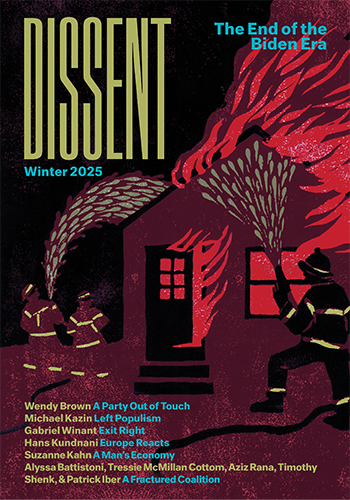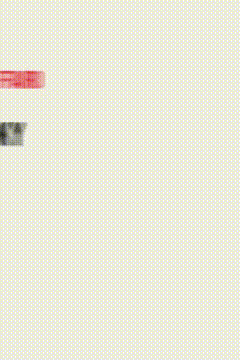Growing Up Radical: An Interview with Peter Carey
Growing Up Radical: An Interview with Peter Carey
tk
Peter Carey has won two Booker prizes: the first for Oscar and Lucinda, which was made into a movie starring Ralph Fiennes and Cate Blanchett; the second for The True History of the Kelly Gang, which sold two-million copies worldwide. In 1990, he moved from Australia to New York and wrote My Life as a Fake and Theft. Now he has published his tenth novel, His Illegal Self, which tells the story of Che, the seven-year-old son of wanted SDS radicals. Dissent contributor Jon Wiener (“The Weatherman Temptation,” Spring 2007) spoke with him in Los Angeles.
 Jon Wiener: In His Illegal Self, the year is 1972 and the characters are set in motion by the Weather Underground. I’m reluctant to talk about the plot because one of the pleasures of the book, especially at the beginning, is figuring out the plot—told mostly from the perspective of a seven-year-old boy. Could you explain what you want people to know about it?
Jon Wiener: In His Illegal Self, the year is 1972 and the characters are set in motion by the Weather Underground. I’m reluctant to talk about the plot because one of the pleasures of the book, especially at the beginning, is figuring out the plot—told mostly from the perspective of a seven-year-old boy. Could you explain what you want people to know about it?
Peter Carey: This is the number one issue for me at the moment. I spent two years building this book, which really depends on withholding information. It delivers a whole series of surprises and thrills for the reader, I hope, which was not easy to achieve. But we live in a culture where people confuse “story” and “art,” and where reviewers are called upon by their editors to report the story. So while they are praising this book, they are sort of destroying it—by giving away all these things.
You’ve given me this chance, and now I’m faced with the same problem they have. I can talk about the story at the beginning. You have this little boy, the child of two Harvard SDS radicals, both underground and wanted by the FBI. The grandmother has custody of the child—she’s a wealthy Park Avenue woman. She doesn’t tell him anything about his parents, and keeps him away from the TV and the news, but he has an informant—downstairs in apartment 5D, a 15-year-old private school radical. He tells the kid,“Your parents are great Americans.”
JW: And then a young woman shows up at the grandmother’s door.
PC: She smells like a mother should smell. They go out, and the two of them get on the subway.
JW: They end up in a counterculture commune in the jungle of northeastern Australia. You seem to know a lot about this world—is that a tribute to your imagination?
PC: I think we should begin with tributes to my imagination. I really do believe that our job is to make things up. I don’t want to reduce it to this. But yes, I lived in what we called an alternative community, and what the locals called “a hippie commune”—they all drove out in their pickup trucks and hid in the bushes so they could watch everybody bathing naked. In about 1975-76, I lived with a woman in a little hut with some fruit trees, and I had some of the most extraordinary, happy times of my life. Apart from the horrendous Queensland police, who were corrupt and venal, it really was like living in paradise. Of course, my characters in the book don’t really want to be there at all. In the book you get their take on the jungle—about which the author feels much more fondly.
JW: Dial, the mother figure, is loyal to the movement but the movement uses her. James Woods wrote in the New Yorker that this book “may appear to harbor a conservative disdain for the spoiled ambitions of 1970s radicalism.” Do you think it does?
PC: When I reached that sentence I became profoundly uneasy. He does go on to say that the book does not. I don’t think it does. “1970s radicalism” is a big and complicated thing. I’m critical of one part of it—the Weather Underground.
JW: So your purpose in writing this book, we have established, was not to express a conservative disdain for 1970s radicalism. What was your purpose?
PC: Thank you for asking! What I wanted to do was to make a really beautiful work of art—with words and sentences that had never before been assembled in that way.
JW: How did you start writing this book?
PC: I had a rough idea. I imagined one of those hippie mothers we used to see on the road with their little boys. The little boys so fiercely protective of their mothers. They would trudge for miles and miles, from festival to commune. They were tired. They didn’t have any money. There was something very touching about that. I just imagined this pair, knowing they would be Americans, on the road heading north out of Brisbane. There’s a tropical storm coming, so they sky is black and dirty yellow. I knew they were going to be picked up by a couple of hippies, and they would end up living on a commune, and then there would be trouble of some sort – but I didn’t know anything very much.
JW: The James Woods review in the New Yorker also says your book is somehow about Islamic terrorism today—he calls it a “necessary novelistic transference” and a “displacement” from seventies radicalism onto today’s terrorism. I must say that never occurred to me. Did it occur to you when you were writing the book?
PC: It didn’t. It made me think James Wood is a lot smarter than I am. It is what happens when you write. But it wasn’t in my mind when I wrote.
Jon Wiener on the “Weather Temptation”
Jon Wiener teaches U.S. history at the University of California-Irvine. His most recent book is Historians in Trouble.




